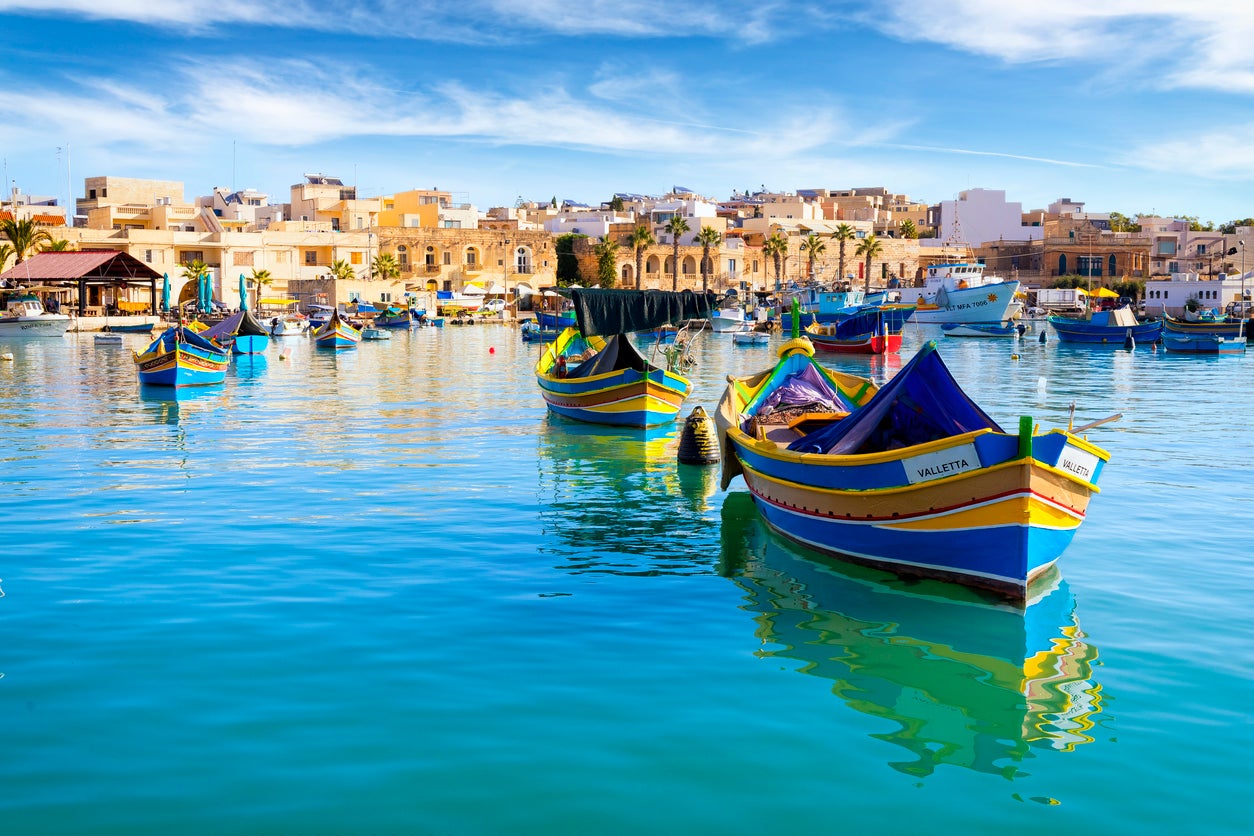Malta travel rules: What are the latest restrictions for holidaymakers?
A normal summer season beckons for Malta, with all remaining Covid-19 restrictions due to be lifted on 25 July

In just under a week, Malta will lift its remaining Covid-19 travel restrictions, meaning that this summer should be business as usual on the tiny Mediterranean island nation.
About time too, as Malta’s beautiful coves and historic architecture make for a fantastic beach break that culture vultures will also love.
Here’s everything you need to know.
Do I need proof of vaccination or a test to visit Malta?
As of 12.00am on 25 July, there will be no Covid-related restrictions on entering Malta.
Until then however, all passengers over the age of 12 years are required to show either proof of vaccination, a negative PCR test taken no more than 72 hours before arrival, or proof of having recovered from Covid-19 within the last 180 days.
Vaccination must have taken place between 14 and 270 days prior to the date of arrival. If more than 270 days have elapsed since vaccination, travellers must show proof of having received a booster jab.
You can use the UK Covid Pass to demonstrate your vaccination record when entering Malta.
Anyone entering Malta without proof of vaccination, recovery or a negative PCR test must quarantine for a minimum of seven and a maximum of 10 days, with a test to release on day seven.
Children under the age of 12 are exempt from these rules.
Do I need to fill in a passenger locator form for Malta?
No, travellers are not required to complete a Passenger Locator Form for entry to Malta. This rule was lifted on 2 May.
Very few countries now require the health tracking forms, previously a staple of pandemic-era travel.
Most European countries ended their Covid health forms during spring 2022.
Destinations which have retained some sort of digital form or health app include the Maldives, Malaysia, Indonesia and South Korea.
Do I need to wear a mask while on holiday in Malta?
Malta suspended its nationwide mask mandate on 2 May.
Masks were still mandatory on flights until 16 May.
The only situations were they are now necessary are in hospitals and care homes.
Has Brexit changed the rules for visiting Malta?
The rule changes that could trip you up on a visit to Malta in 2022 are more likely to be Brexit-related than Covid-related. Since the UK left the European Union, there are new rules regarding length and frequency of visits to countries in the Schengen Area (including Malta), as well as rules around passport stamps and validity.
To visit an EU country post-Brexit, your passport must be:
- issued less than 10 years before the date you enter the country (check the “date of issue”)
- valid for at least 3 months after the day you plan to leave (check the “expiry date”)
There is also now a time limit on how long and how often you can visit Malta, visa free. The Foreign Office advises: “You can travel to countries in the Schengen area for up to 90 days in any 180-day period without a visa.
“To stay longer, to work or study, for business or for other reasons, you will need to meet the Maltese government’s entry requirements.”
Join our commenting forum
Join thought-provoking conversations, follow other Independent readers and see their replies
Comments
Bookmark popover
Removed from bookmarks